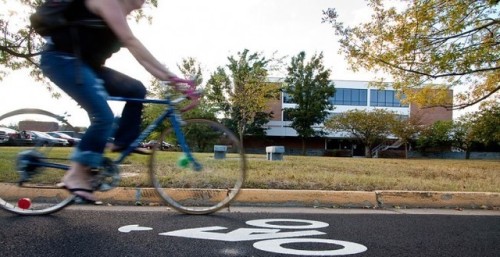Student loans and the problem of how to widen access have been in the news again – while the post-1992 universities are about to take a big financial hit
DfE ‘failed’ to monitor UK Student Loans Company
Times Higher Education, 11/05/2018, Ellie Bothwell
The UK government failed to effectively oversee the Student Loans Company during the tenure of its former chief executive Steve Lamey, according to a report from public spending watchdog the National Audit Office.
Student loan rates absurd, say MPs
BBC, 11/05/2018, Sean Coughlan
The inflation measure used to set interest rates on student loans is “absurd”, says a report from MPs.
The government uses RPI – the Retail Prices Index – which the Treasury Select Committee says is “flawed” and should be “abandoned”.
England’s large post-92s take hit on ‘student outcomes’ funding cut
Times Higher Education, 11/05/2018, Simon Baker
A number of newer English universities are among those losing the most direct teaching funding next year following a £30 million cut to funding designed to stop disadvantaged students dropping out of university.
At some large post-92 institutions, including London Metropolitan University, Leeds Beckett University and Manchester Metropolitan University, overall grant funding will drop by more than £1 million, a large part of which is down to the cut.
White working-class boys in England ‘need more help’ to go to university
The Guardian, 10/05/2018 Richard Adams
Helping white, working-class boys in England to go on to higher education should be a top priority for policymakers, according to a manifesto to widen access to universities that identifies more than 30 gaps and weaknesses in policy.
Thinking big: 35 ideas for widening access to higher education
Wonkhe, 10/05/2018, Diana Beech
Let’s face it – we all appreciate a nod in the right direction when starting a new job.
This could be a polite hint about what needs doing, guidance on what to prioritise, or helpful advice on how to go about it. Chris Millward, is surely no exception to this rule, having just started out in his new role as Director of Fair Access and Participation at Office for Students (OfS).
UK universities alarmed by poaching of top computer science brains
Financial Times, 09/05/2018, Aliya Ram
The hiring of professors in artificial intelligence by big technology companies is “killing the goose that lays the golden eggs”, according to Abhinay Muthoo. The dean of Warwick university’s King’s Cross campus in London, which coordinates its AI projects, fears the poaching of the best computer science brains in UK higher education by US groups such as Amazon, Google and Uber is threatening Britain’s ability to build on a world leading position in machine learning.
Business schools create new courses to tap apprenticeship levy
Financial Times, 08/05/2018, Jonathan Moules
Business schools are being reinvigorated by the apprenticeship levy, with 40 out of 113 universities creating specific MBA courses to take advantage of the tax, according to a new survey.
More than 1,400 people will enrol in levy-friendly MBA courses during the next 12 months, according to the poll by TES, an education magazine.
More than 1,400 people will enrol in levy-friendly MBA courses during the next 12 months, according to the poll by TES, an education magazine. A further two universities said they were in the process of setting up courses, while others said they were considering a move into the market.
Scrap essays to stop cheats, universities told
The Times, 0405/2018, Rosemary Bennett
Universities have been urged to stop relying on the traditional written essay to assess students in order to overcome the scourge of “contract cheating”.
Online essay mills, companies selling essays and coursework, have sprung up all over the world. An Australian study said 6 per cent of students there had bought at least one essay or paid for work they submitted for their degree.
Unconditional offers fail students. Bring back university entrance exams
The Guardian, 04/05/2018, Gillian Evans
Good A-levels have long been treated as indicators of an applicant’s ability to cope with a degree course and graduate successfully. But the rise of unconditional offers has undermined this. In 2013-14, 2,985 students were told their grades didn’t matter – by 2015-16, that number had risen to 51,615. At the same time, drop-out rates are rising. Now, the new regulator, the Office for Students, is working with Ucas to investigate the impact of unconditional offers on students’ access to higher education and degree and employment outcomes.
If student maintenance grants are coming back, who will pay for them?
The Guardian, 01/05/2018, David Morris
Back when student maintenance grants were abolished in 2015, universities seemed relatively relaxed. Ignoring the student protests over how they would cope with high costs of living, universities were quietly satisfied that at least the changes came in tandem with an inflationary rise in tuition fees, linked to their performance in the teaching excellence framework. How times have changed.

from RSSMix.com Mix ID 8239600
http://cdbu.org.uk/news-round-up-mps-describe-the-interest-rates-on-student-loans-as-absurd/
via
IFTTT
source
https://thermoplasticroadmarking.tumblr.com/post/173799091329








































